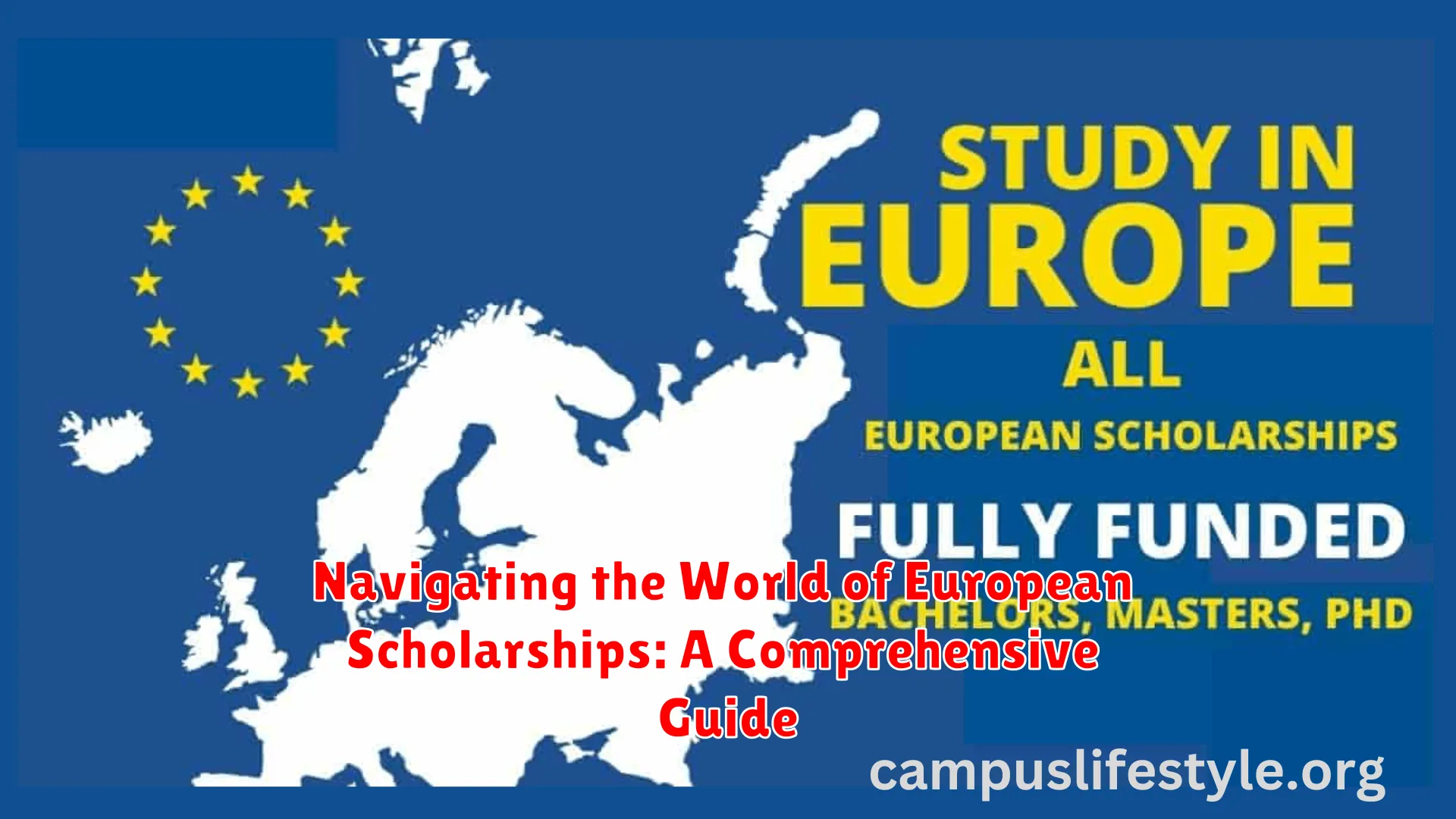Embark on a journey to explore the realm of European scholarships with our comprehensive guide, providing valuable insights and resources to navigate the intricacies of funding opportunities for your academic pursuits.
Understanding European Scholarship Systems

When it comes to navigating the world of European scholarships, understanding the scholarship systems in place is crucial for prospective applicants. European countries offer a wide range of scholarship opportunities for international students, each with its own set of eligibility criteria, application procedures, and benefits.
One key aspect to understand about European scholarship systems is the diversity of funding sources. These scholarships can be offered by governments, universities, non-profit organizations, or private companies. Each source may have different objectives and requirements, so applicants should carefully research and identify the scholarships that best align with their academic goals and personal circumstances.
Another important point to note is the variety of scholarship types available in Europe. These include merit-based scholarships, need-based scholarships, research grants, and specific program scholarships. By understanding the differences between these types, applicants can better tailor their applications to increase their chances of securing funding.
Furthermore, it is essential to grasp the application timelines and deadlines for European scholarships. Many scholarship programs have strict deadlines and require applicants to submit thorough documentation to be considered for awards. Missing deadlines can result in disqualification, so staying organized and planning ahead is key.
Overall, by understanding the intricacies of European scholarship systems, applicants can navigate the process more effectively and increase their chances of securing funding for their academic pursuits in Europe.
Tips for Researching Scholarships

Researching scholarships can be a daunting task, especially when navigating the world of European scholarships. Here are some essential tips to help you find the right scholarships for your academic journey:
1. Start Early
Begin your scholarship search as early as possible to maximize your chances of finding suitable opportunities. Many scholarships have early application deadlines, so starting early can give you a competitive edge.
2. Use Online Resources
Make use of online scholarship search engines and databases to explore a wide range of scholarship options. Websites like European Funding Guide and Erasmus+ offer comprehensive databases of scholarships available for international students.
3. Check Eligibility Criteria
Before applying for any scholarship, carefully review the eligibility criteria. Ensure that you meet all the requirements specified by the scholarship provider to avoid wasting time on applications for which you are not eligible.
4. Seek Guidance
Reach out to your school’s guidance counselor or scholarship advisor for assistance in finding relevant scholarships. They can provide valuable insights and guidance on the application process.
5. Tailor Your Applications
Customize your scholarship applications to match the specific requirements of each scholarship. Tailoring your applications increases your chances of standing out among other applicants.
6. Stay Organized
Keep track of application deadlines, required documents, and key information for each scholarship you are interested in. Staying organized will help you stay on top of your scholarship search.
By following these tips, you can navigate the world of European scholarships more effectively and increase your chances of securing funding for your academic pursuits.
Crafting Compelling Applications

When applying for European scholarships, crafting a compelling application is essential to stand out among the pool of candidates. Here are some key strategies to help you enhance your application:
1. Tailor Your Application
One of the most important aspects of crafting a compelling application is to tailor it to the specific scholarship you are applying for. Research the scholarship provider, understand their values and mission, and tailor your application to showcase how you align with their goals.
2. Highlight Your Achievements
Be sure to highlight your academic achievements, extracurricular activities, community service, and any other relevant experiences that demonstrate your qualifications for the scholarship. Use concrete examples to showcase your skills and accomplishments.
3. Write a Stellar Personal Statement
Your personal statement is your chance to showcase your personality, motivations, and goals. Craft a compelling personal statement that not only highlights your achievements but also tells a compelling story about who you are and why you are deserving of the scholarship.
4. Obtain Strong Letters of Recommendation
Strong letters of recommendation can greatly enhance your scholarship application. Choose recommenders who know you well and can speak to your strengths, accomplishments, and potential. Ensure that the letters provide specific examples that support your application.
Leveraging Academic Achievements

When it comes to navigating the world of European scholarships, leveraging your academic achievements is key to standing out among other applicants and securing funding for your studies. Academic achievements are a crucial factor that scholarship committees consider when evaluating candidates, so highlighting and showcasing your accomplishments can greatly enhance your chances of success.
One effective way to leverage your academic achievements is to maintain a strong GPA throughout your academic career. A high GPA not only demonstrates your dedication to your studies but also showcases your ability to excel academically. Scholarship providers often look for candidates with a strong academic record, so maintaining a competitive GPA can set you apart from other applicants.
Additionally, engaging in extracurricular activities related to your field of study can further enhance your profile. Participation in research projects, internships, or relevant clubs and organizations can demonstrate your practical skills and passion for your chosen field. Scholarship committees value well-rounded candidates who go beyond their academic achievements and actively contribute to their community.
Conclusion
Exploring European scholarships can open doors to diverse study opportunities and cultural experiences. Understanding the application process and eligibility criteria is key to successfully navigating this financial aid landscape.

